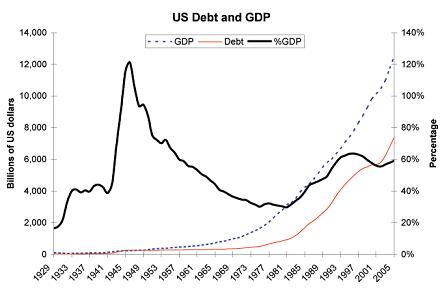



Posted on 09/17/2006 11:10:31 AM PDT by humint
THEN
...there can be no doubt that opponents of slavery had come to view the South's "peculiar institution," as an obstacle to economic growth. Despite clear evidence that slavery was profitable, abolitionists--and many people who were not abolitionists--felt strongly that slavery degraded labor, inhibited urbanization and mechanization, thwarted industrialization, and stifled progress, and associated slavery with economic backwardness, inefficiency, indebtedness, and economic and social stagnation. When the North waged war on slavery, it was not because it had overcome racism; rather, it was because Northerners in increasing numbers identified their society with progress and viewed slavery as an intolerable obstacle to innovation, moral improvement, free labor, and commercial and economic growth.
On March 14, 1793, Eli Whitney obtained a patent for the cotton gin. The cotton gin made the production of cotton highly profitable. This changed the economics of slavery greatly. Many had believed that slavery would slowly die out, as the tobacco fields (where most slaves were employed) were slowly depleted. The economical production of cotton, on the other hand, greatly increased the economic importance of slavery to the South, thus ensuring its continued dependence on it.




NOW
"Dependence on foreign oil jeopardizes our capacity to grow," Bush said in a speech focused on the economy -- a key issue in November elections that might determine whether the GOP retains control of the House and Senate. Democrats contend the middle class isn't enjoying the benefits of U.S. economic gains. They say sluggish median earnings show paychecks have failed to keep pace with inflation, and they note rising health care and energy costs. Gasoline prices have eased over the past month, but Bush warned against continued reliance on oil-producing countries where the United States is unpopular. "The problem is we get oil from some parts of the world and they simply don't like us," Bush said. "And so the more dependent we are on that type of energy, the less likely it will be that we are able to compete, and so people have good, high-paying jobs."




Although there are always many factors in historical events, only Marxists throw away everything but the economic. Lincoln greeted Harriet Beecher Stowe saying she was the little lady that started the Civil War. The issue was human bondabe, not racism.
And that means less votes for the Democrats. Is it any wonder that so many oil and gas fields are closed to exploration?
I totally agree. Beyond economics, religion played a major role in the anti-slavery abolition movement. Beyond religion, the institution clearly conflicted with the concepts of liberty and moral justice evident in the founding principles of the United States. Alternatively - Islamic fascism and pan-Arab nationalism are the cohesive forces trying to drive all but the West’s cash out of the Middle East. It’s undeniable that energy economics are the primary reason the West is interested in the Middle East at all. Supporting universal liberty and the rule of law across the region are the only plausible plans to eliminate the threat emanating from the Middle East. The Bush Administration has it right. The status quo cannot continue. The incredible wealth transfer from the West to Middle Eastern leaders ill equipped to absorb such fiscal responsibility has to stop. Leaders there will have to start recycling petro-dollars in progressive instead of regressive ways. The American public – especially our history teachers – are an important part of the story. They are the ones who harbor the capacity to understand what is happening and articulate it, so that this and future US administrations have the latitude to do what must be done.
"The cotton gin made the production of cotton highly profitable."
Yes, it did. And I've read many instances where the North expressed extreme jealously that they didn't receive the profits. Money and power for the North were the main reasons for the Civil War, not slavery as is so widely accepted...
With so much to lose on both sides of the Mason-Dixon Line, economic logic suggests that a peaceful solution to the slave issue would have made far more sense than a bloody war. Yet no solution emerged. One "economic" solution to the slave problem would be for those who objected to slavery to "buy out" the economic interest of Southern slaveholders. Under such a scheme, the federal government would purchase slaves. A major problem here was that the costs of such a scheme would have been enormous. Claudia Goldin estimates that the cost of having the government buy all the slaves in the United States in 1860, would be about $2.7 billion (1973: 85, Table 1). Obviously, such a large sum could not be paid all at once. Yet even if the payments were spread over 25 years, the annual costs of such a scheme would involve a tripling of federal government outlays (Ransom and Sutch 1990: 39-42)! The costs could be reduced substantially if instead of freeing all the slaves at once, children were left in bondage until the age of 18 or 21 (Goldin 1973:85). Yet there would remain the problem of how even those reduced costs could be distributed among various groups in the population. The cost of any "compensated" emancipation scheme was so high that even those who wished to eliminate slavery were unwilling to pay for a "buyout" of those who owned slaves.


Thanks for the post...


Disclaimer: Opinions posted on Free Republic are those of the individual posters and do not necessarily represent the opinion of Free Republic or its management. All materials posted herein are protected by copyright law and the exemption for fair use of copyrighted works.